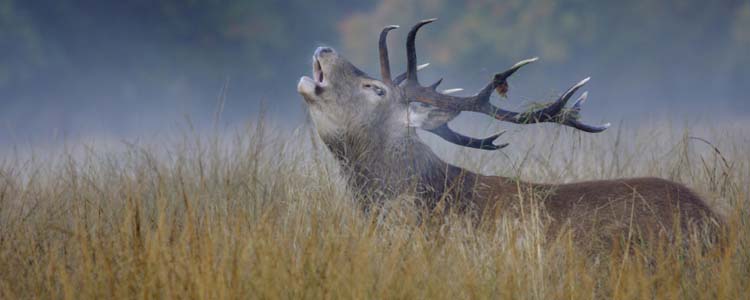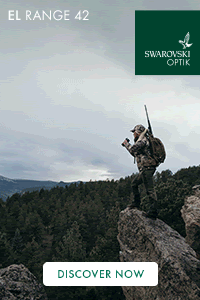John Barton looks at the challenges of finding your own stalking ground.
Deerstalking in the UK is more popular than it has ever been.
Brought to the attention of a wider audience by the likes of Ray Mears and a brigade of game-hungry TV chefs, it’s no longer just the gentry who seek the challenge and reward of pursuing deer with a rifle. Combined with recent, widely publicised claims that the British wild deer herd is burgeoning, even more people have been encouraged to look into the possibility of ‘having a go’ themselves.
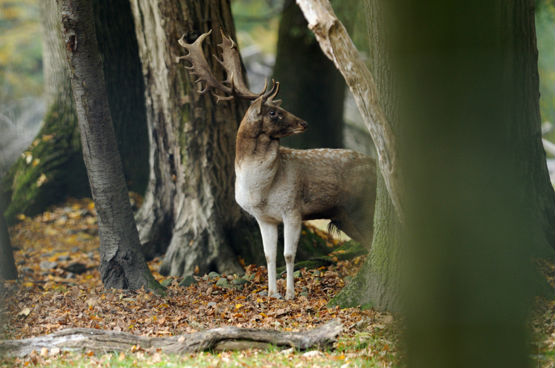
Stringent UK firearms legislation, a limited amount of land, an understandable culture of protectionism and competition all add up to some substantial barriers for the curious newcomer. The reality of the situation soon snuffs out mere casual interest, and it could be argued that this is desirable on our small, densely populated island, given the hunting accidents are often reported in countries with fewer controls.
But what if you’re a little better informed and a lot more focused? Well firstly you have to decide what level of involvement you wish to participate at.
There are several ways to stalk deer recreationally, all of which can be sought out by the committed. If you are someone who will only want to stalk two or three times a year and are happy to be accompanied, then paid-for stalking with a guide is an excellent way to go about this. You may even be happy to take advantage of the 'Estate Rifle' legislation and save yourself the expense and hassle of gun ownership.
The logical progression from here is the acquisition of your own FAC and rifle with more regular stalking, you may even want to take things to the next level, go out on your own and look at sharing land with others.
Many people in this situation seek to join a syndicate (this demands an article in its own right and is not the subject here).
But what about people like me who want to take on their own ground, manage it alone, year round, with the possibility of taking clients of their own out? Let’s look at the barriers and the ways to try and overcome them.
As with so much in life, it’s all about competition. In countries where land is plentiful and the population more widely spread, there is greater opportunity and often less stringent legislation. On a recent trip to New Zealand I was advised that the best way to ‘go hunting’ was to buy a rifle with my UK FAC, “go into the bush and hunt, then sell the rifle” before heading home. Not quite relevant here, but wow! In Britain, the land available and number of prospective shooters equals a classic supply and demand situation. The reality when seeking stalking opportunities is that there are twenty chaps of varying degrees of experience, expertise and cunning seeking the same window of opportunity.
The harsh reality is that some will be less scrupulous than you.
So how do you gain the edge over your competitors, and how do you secure rights over that tricky first piece of land?
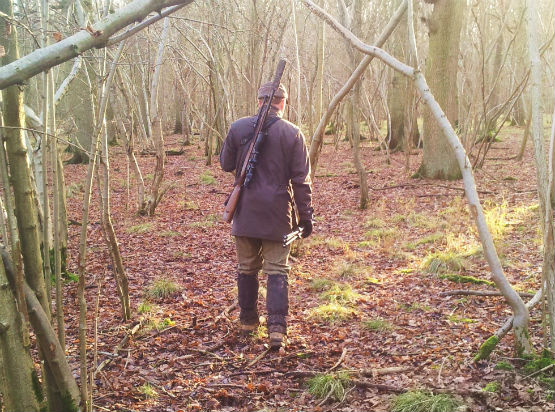
Experience is key.
Unless you get out there and get some real experience under your belt you’ll be ill equipped in future when speaking to landowners. You can study all you like, and theory is important, but a canny country person will know when your knowledge is less than practical. For many people in my position, such experience comes at a cost.
Gaining enough experience to be taken seriously takes time. Accept that you will probably need to invest in paid-for, accompanied stalks until you find another opportunity. ‘Find’ is the key word here. You must seek it out. It will not find you
I foolishly once thought that doors would open as I got more involved, but it’s more difficult than that. First you have to find the right door, then, hammer away until someone answers. After much searching I managed to secure training and access to ground as part of a package, but this came at a financial cost, and no doubt you will have to pay as well. As the old cliché goes; you don’t get anything for nothing. The payoff was that once I had evidenced the reason I needed an open FAC it was soon granted. Another hurdle overcome and you can only straddle them one at a time.
Through this experience I was subsequently asked to participate in park culling. I would encourage others to gain this experience. Although this has little to do with stalking, it does prove your ability to operate accurately and effectively under pressure and scrutiny, and should be of interest to any landowners you talk to. It’s also something that could help single you out from the crowd. I have visited deer farms and parks and attended talks with the British Deer Farms and Parks Association. I also gained experience on a dairy farm which has helped me when talking with farmers - every little helps.
The lone stalking experience I have gained has proven invaluable. The confidence gained in my ability as a stalker has been immeasurable and the stalking so much more rewarding. It may be that the only way that you can gain experience alone is by joining a syndicate, and for this you may need to gain DSC1 or 2.
As well as the qualifications you can evidence, ask stalking guides or trainers if they will provide an open written reference for landowners.
Training is increasingly important.
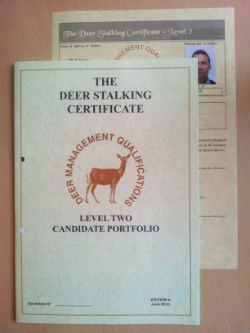 Many police authorities are now looking for Deer Stalking Certificate 1 (DSC1) as a requirement for granting deer permission on FACs. Training helps evidence your commitment. I have gone to the trouble of gaining DSC1, Advanced Deer Management, Humane Dispatch, Live Capture, First Aid and Manual Handling, and I’m going through DSC2.
Many police authorities are now looking for Deer Stalking Certificate 1 (DSC1) as a requirement for granting deer permission on FACs. Training helps evidence your commitment. I have gone to the trouble of gaining DSC1, Advanced Deer Management, Humane Dispatch, Live Capture, First Aid and Manual Handling, and I’m going through DSC2.
This may seem excessive, but I believe that given the competition it’s vital that you can show you are prepared to do all you can to offer landowners more than a nod and a wink with the odd carcass thrown in. It may be that you only want to complete DSC1 and perhaps 2, but broadening your qualifications can never do any harm and you never know who you’ll get talking to during training session.
Offer something extra.
It’s reasonable to assume that today many landowners would prefer to see proper evidence of deer management activities, rather than an occasional handwritten receipt from the game dealer. Even if you have had no management experience you can still produce draft observation & cull reports and produce mock site surveys and impact assessments. There’s information online about how to create these (The Deer Initiative) and you don’t have to be a genius with a PC to create something meaningful (although you do need a PC!). Showing how accountable you make yourself is another great point of difference from the competition. I believe that once you have secured ground, part of the key to keeping it is accurate annual reporting and regular, honest, open, communication.
I offer the reports I have created for the ground I co-manage (a sort of syndicate arrangement) as evidence of the way I operate. I also offer photographic services. Whilst I’m surveying a ground I can do so with my camera. Any nice shots of the house, scenery, livestock or wildlife can be offered to the landowner - anything helps, and anything extra you can offer is worth considering. Again, it’s about being different to the crowd.
Get out there.
It doesn’t hurt to repeat this; opportunity will not find you. Posting notes, however well penned, into farm letterboxes will not result in a phone call requesting you start managing deer next Thursday.
Visit farms and farm shops. Take the bull by the horns. Go to local pubs. Try farmers markets. Talk to people and they may know people. Keep plugging away. A word of caution; approach the subject with some discretion. Those in the know will understand. Those who aren’t sure what ‘deer and wildlife management’ entails will probably be of no use to you anyway.
Be personable. Be honest.
A faceless note or email will probably get you nowhere. People love to deal with people, and in particular, pleasant people. If you do manage to get some face-to-face time with a landowner always be courteous and professional. This may seem obvious, but stress and the pace of modern life can make us all forget how to communicate sometimes. Try and be memorable (for the right reasons).
Don’t ‘BS’ as you’ll be found out eventually. Don’t slate the competition and don’t be dishonest. Regardless of the rights and wrongs of such caddery, you will do yourself more harm than good in the long term.
Approach agents.
Although a professionally worded email will probably not provoke a response from a landowner, it may generate interest from a land agent who looks after sporting rights for clients. Seek them online, they’re another avenue worth exploring. Any reports you have created will be of interest to them.
Even with all of the above taken into account, securing ground is still the most difficult thing you'll face in deer management.
Without sounding Californian, don’t give up, that’s what the other guys will do! I have my own challenge of securing ground more local to my home in the coming weeks. Here’s hoping that I can practice what I preach. I will certainly update this article if anything comes my way, no, hold on... if I find anything!
To find out more about the deer stalkers Certificate follow this link: deer-stalking-certificate
For more information about courses and training with 'County deer Stalking' follow this link: deer-stalking-packages
Alternatively for more from John Barton click on the following: new-forest-roe-buck




